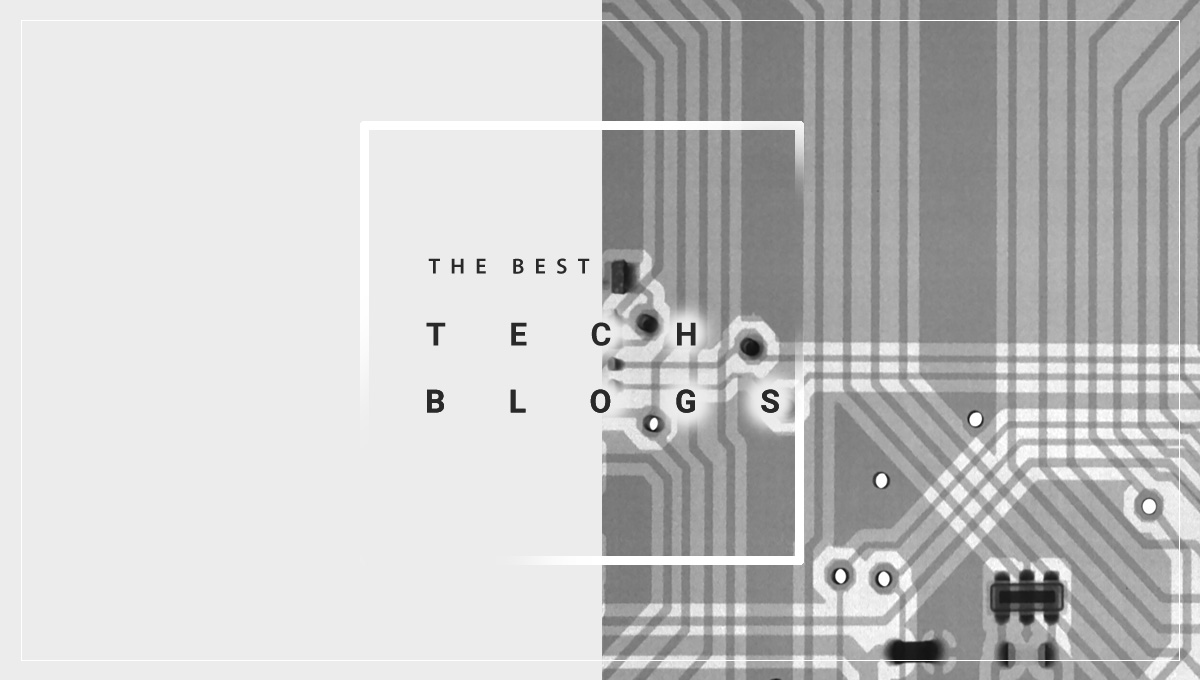The Best tech blog: Your Necessary Guide to Browsing the Digital World
The Best tech blog: Your Necessary Guide to Browsing the Digital World
Blog Article
Exactly How Blockchain Modern Technology Is Revolutionizing Data Protection
Blockchain technology is essentially modifying the landscape of information protection by introducing a decentralized structure that guarantees enhanced transparency and durability. Unlike conventional systems, which count on centralized data databases, blockchain disperses data across a network, decreasing vulnerabilities and single points of failing. The usage of innovative cryptographic strategies makes certain that information stays tamper-proof, cultivating depend on amongst stakeholders and customers.
The Fundamentals of Blockchain
Blockchain innovation, an innovative principle in electronic data monitoring, fundamentally changes just how info is saved and protected. At its core, a blockchain is a distributed ledger that records deals throughout a network of computers, guaranteeing openness and immutability.
Secret to comprehending blockchain is the hashing procedure, which secures purchase information right into a special alphanumeric code. This cryptographic function makes sure that any kind of alteration in the purchase data leads to a completely different hash, thus guarding against meddling. The agreement system, one more vital part, confirms and verifies brand-new purchases through a network of nodes, thereby getting rid of the demand for a centralized authority.
In addition, blockchain's append-only framework makes sure that information, when added, can not be deleted or changed. This characteristic assurances a proven and permanent document of purchases, promoting trust amongst individuals. As an outcome, blockchain offers a durable structure for information integrity, using sectors a trusted method for tracking and managing digital info in a safe, transparent manner.
Decentralization and Protection
Decentralization, a core principle of blockchain modern technology, substantially boosts information safety by dispersing control throughout a network as opposed to depending on a single, central entity. This distribution mitigates the danger of solitary points of failing, which are widespread in standard central systems. By dispersing data across countless nodes, blockchain makes certain that even if one node is compromised, the entire network remains safe. This redundancy not only fortifies the honesty of the information however additionally raises its resilience to cyberattacks and system failures.

Each individual in the network has access to the whole blockchain, enabling them to confirm and investigate purchases individually. On the whole, decentralization is crucial in improving information safety in blockchain networks.

Cryptographic Strategies
At the heart of blockchain innovation, cryptographic methods play a pivotal role in safeguarding information, guaranteeing both confidentiality and honesty. Cryptography in blockchain employs a mix of asymmetric and symmetrical algorithms to encrypt information, making it easily accessible just to authorized celebrations.
Hash functions are another crucial part, changing input information right into a fixed-size string of characters, effectively producing a special electronic finger print for each block. This makes certain that any kind of attempt to modify the data will certainly lead to a totally various hash, thus preserving the immutability of the blockchain. Digital trademarks validate the credibility and integrity of transactions, supplying a layer of non-repudiation.
The decentralized nature of blockchain, incorporated with durable cryptographic techniques, eliminates the demand for middlemans, reducing potential vulnerabilities. As blockchain modern technology advances, innovations in cryptography such as zero-knowledge proofs and homomorphic file encryption continue to improve safety procedures, additionally strengthening data security in this innovative digital journal system.
Use Cases Across Industries

In the healthcare sector, blockchain guarantees the safe storage space and sharing of client documents, promoting interoperability while securing delicate data from unapproved gain access to. This innovation equips clients with control over their case history and assists in seamless control amongst health care providers.
Supply chain administration advantages significantly from blockchain's immutable journal, which makes certain traceability and authenticity of items from beginning to customer. By boosting openness, blockchain assists minimize concerns such as counterfeiting and dishonest sourcing.
Additionally, blockchain's decentralized nature is improving the power industry by enabling peer-to-peer power trading, where consumers can acquire and market excess eco-friendly power straight. This fosters a much more reliable and lasting power ecosystem.
In the world of copyright, blockchain gives a tamper-proof system for developers to register and shield their works, guaranteeing rightful attribution and reasonable payment. These diverse usage cases underscore blockchain's role as a crucial pressure in redefining information protection across sectors.
Future of Information Security
As we look Website to the future of information defense, blockchain innovation is positioned to play a pivotal role in securing electronic info. With its decentralized and immutable check over here attributes, blockchain uses a durable structure for securing delicate data against unauthorized accessibility and cyber hazards. This modern technology makes sure that as soon as information is videotaped, it is almost impossible to modify without detection, thus offering a significant advantage over conventional information storage space approaches.
The assimilation of blockchain with other advanced modern technologies, such as man-made knowledge and the Net of Things (IoT), is anticipated to improve data security methods even more. By leveraging wise agreements, organizations can automate and implement security procedures, lowering human mistake and raising efficiency. Additionally, blockchain's capability to give transparent and deducible purchases will strengthen trust fund and liability in information management practices.
As regulatory landscapes advance, blockchain's compliance-friendly nature will come to be progressively pertinent. It can aid organizations satisfy strict data protection regulations, such as the General Information Security Guideline (GDPR) and the California Customer Personal Privacy Act (CCPA), by offering proven records of data handling tasks. Eventually, blockchain's unique attributes setting it as a transformative tool in the recurring quest to protect the digital globe against ever-evolving cyber hazards.
Verdict
Blockchain innovation represents a paradigm shift in information security by leveraging decentralization and cryptographic methods to boost transparency, count on, and data stability. As cyber hazards develop, blockchain arises as a crucial news device for durable information security across numerous markets.
Blockchain innovation is fundamentally changing the landscape of data security by introducing a decentralized structure that promises enhanced transparency and strength. Unlike standard systems, which count on centralized information repositories, blockchain disperses data across a network, reducing vulnerabilities and solitary points of failing.Decentralization, a core principle of blockchain technology, dramatically enhances data safety and security by distributing control across a network rather than depending on a single, centralized entity.At the heart of blockchain innovation, cryptographic strategies play a critical function in securing information, ensuring both confidentiality and integrity.Blockchain technology stands for a paradigm shift in data safety by leveraging decentralization and cryptographic strategies to enhance openness, trust fund, and data honesty.
Report this page